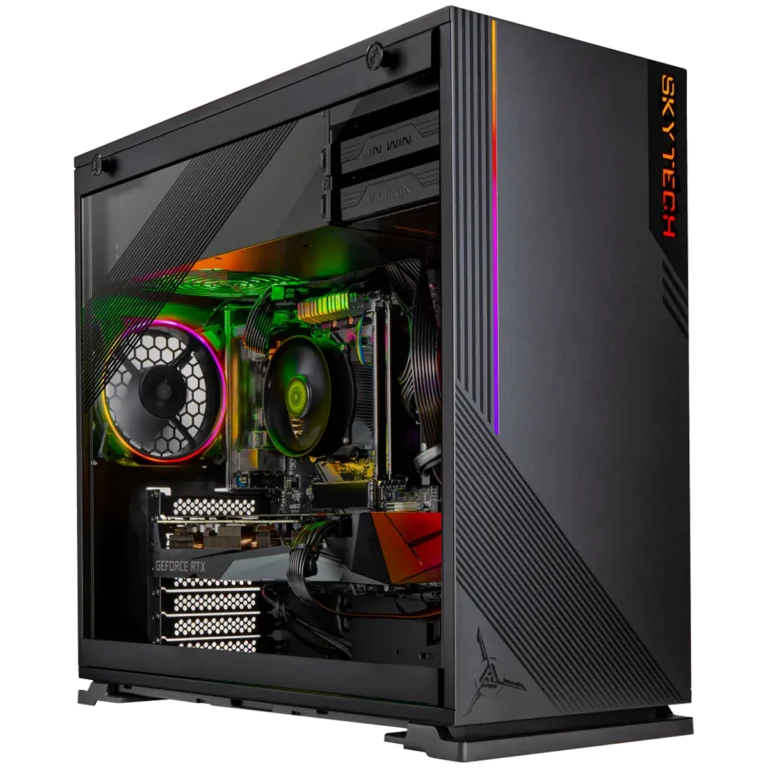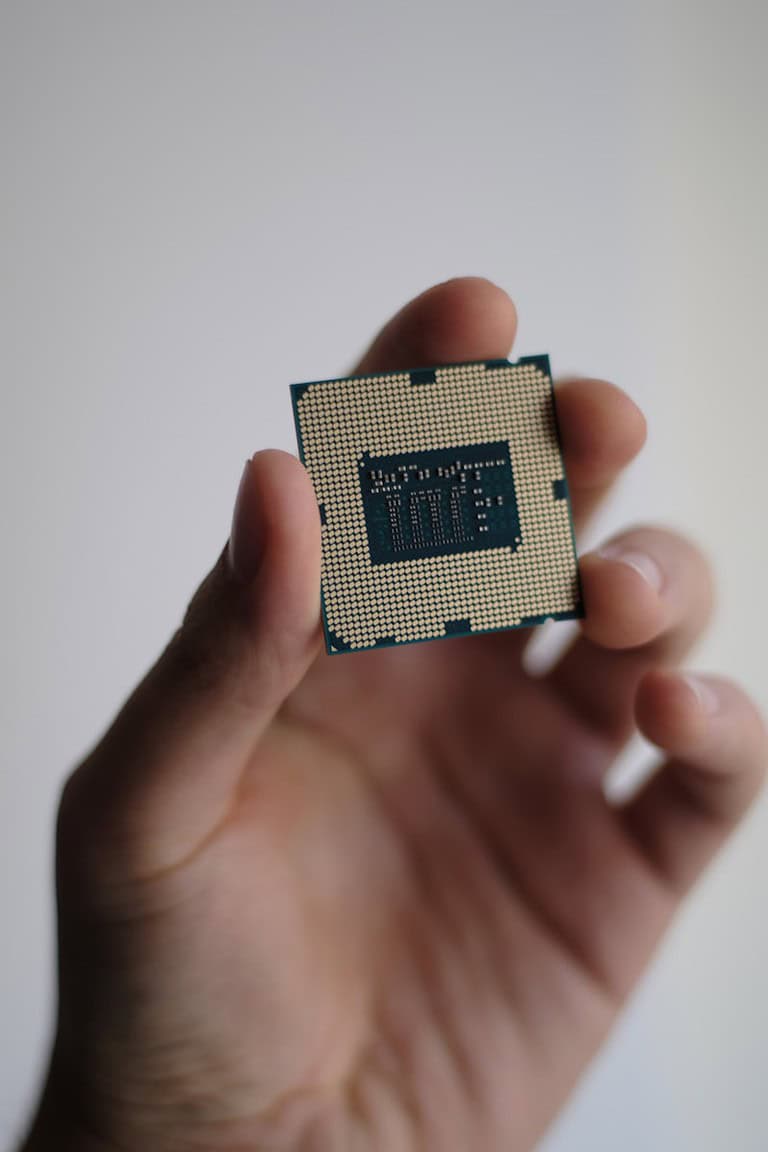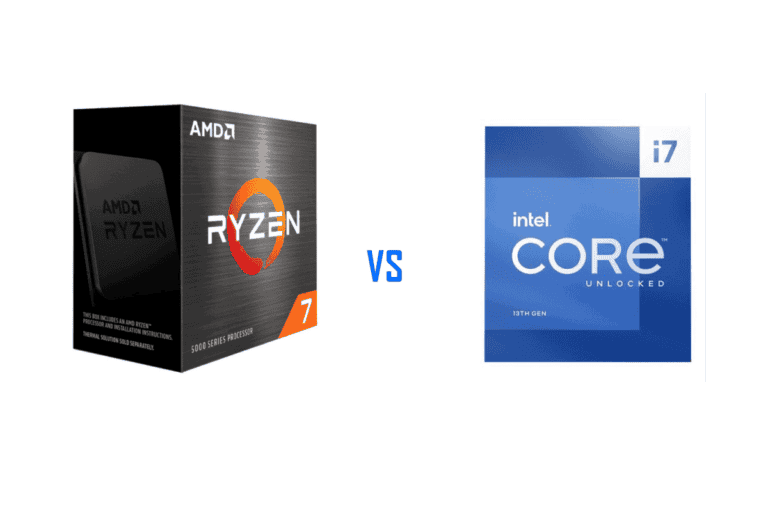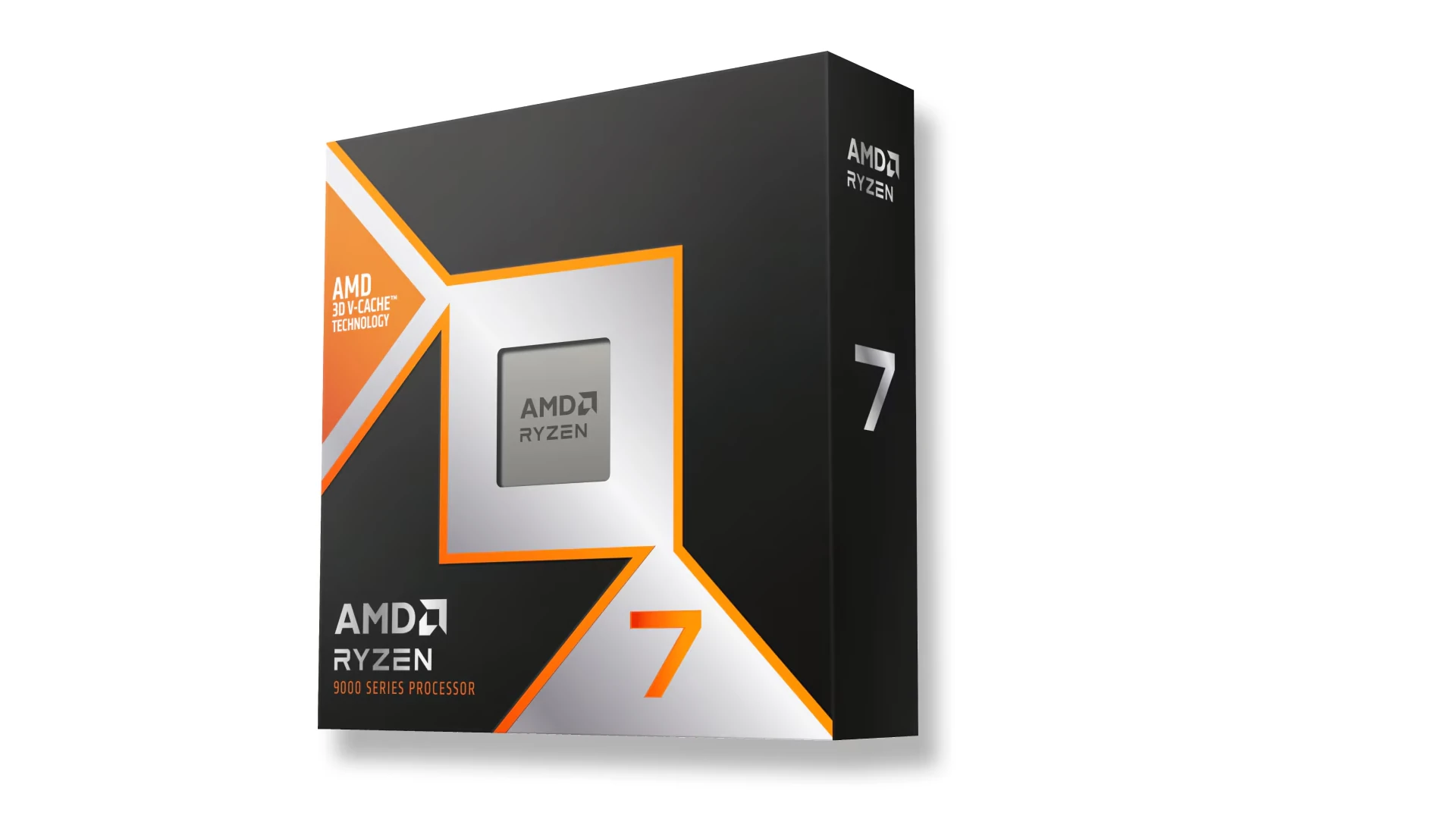
AMD’s latest processors, the Ryzen 7 9800X3D and Ryzen 9 9950X, offer impressive performance for different user needs. The 9800X3D features 8 cores and 16 threads, while the 9950X boasts 16 cores and 32 threads. The 9800X3D excels in gaming performance, thanks to its 3D V-Cache technology, while the 9950X shines in multi-threaded workloads.
Both CPUs support AM5 motherboards and DDR5 memory, providing users with cutting-edge technology. The 9800X3D has a maximum boost clock of 5.25 GHz, while the 9950X reaches up to 5.70 GHz. This clock speed difference contributes to the 9950X’s advantage in productivity tasks.
Pricing also plays a role in the decision-making process. The 9800X3D is currently available for $479, making it an attractive option for gamers. The 9950X, priced at $698, targets users who require high multi-core performance for demanding applications.
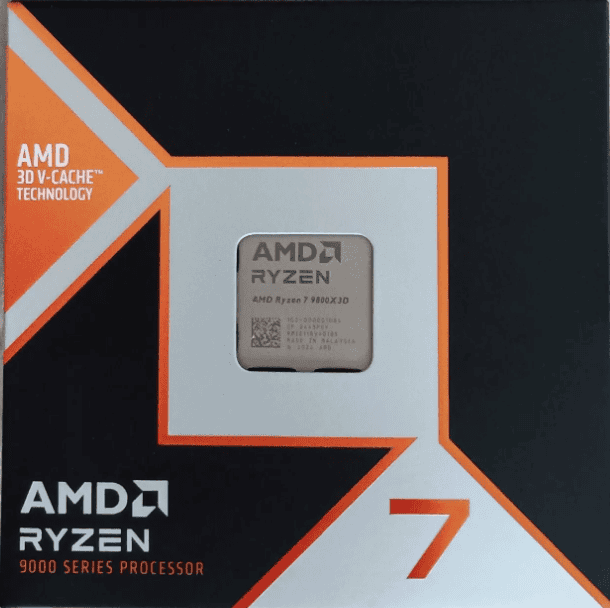
AMD 9800X3D vs 9950X: Choosing the Right High-End CPU
AMD offers a compelling range of high-end CPUs, and choosing the right one can be tricky. Here, we compare the Ryzen 9 9800X3D and the Ryzen 9 9950X to help you make an informed decision.
AMD Ryzen 9 9800X3D
- Cores/Threads: 8 cores / 16 threads
- Base Clock: 4.2 GHz
- Boost Clock: 5.0 GHz
- L3 Cache: 104MB (96MB V-Cache + 8MB)
- TDP: 120W
Strengths:
- Gaming Performance: Excels in gaming due to its large L3 cache (V-Cache), providing incredibly high frame rates.
- Power Efficiency: Offers excellent performance per watt.
Weaknesses:
- Limited Core Count: May not be the best choice for heavily multi-threaded tasks.
AMD Ryzen 9 9950X

- Cores/Threads: 16 cores / 32 threads
- Base Clock: 3.5 GHz
- Boost Clock: 4.7 GHz
- L3 Cache: 64MB
- TDP: 160W
Strengths:
- Multi-threaded Powerhouse: Dominates in tasks that utilize many cores, such as video editing, 3D rendering, and software development.
- High Core Count: Provides ample processing power for demanding applications.
Weaknesses:
- Gaming Performance: While still a capable gaming CPU, it lags behind the 9800X3D in gaming-specific benchmarks.
- Higher Power Consumption: Consumes more power than the 9800X3D.
Which CPU is Right for You?
| Feature | AMD 9800X3D | AMD 9950X |
|---|---|---|
| Ideal Use Case | Gaming, general use | Content creation, multitasking, demanding applications |
| Gaming Performance | Excellent | Good |
| Multi-threaded Performance | Good | Excellent |
| Power Consumption | Lower | Higher |
| Price | Lower | Higher |
Choose the 9800X3D if:
- Gaming is your primary focus.
- You want the best possible gaming performance.
- You prioritize power efficiency.
Choose the 9950X if:
- You need a CPU for demanding tasks like video editing, 3D rendering, or software development.
- You frequently multitask and run many applications simultaneously.
- You prioritize core count and multi-threaded performance.
Understanding 3D V-Cache
AMD’s 3D V-Cache technology is a game-changer for CPU performance, particularly in gaming. It stacks additional L3 cache vertically on top of the CPU die, significantly increasing the amount of high-speed memory available to the processor. This allows the CPU to access frequently used data much faster, resulting in:
- Higher frame rates: 3D V-Cache can provide a significant boost to gaming performance, especially at higher resolutions.
- Smoother gameplay: Reduced stuttering and frame drops.
- Improved performance in some applications: Applications that rely heavily on cache can also benefit from 3D V-Cache.
While the 9800X3D currently leads in gaming benchmarks, rumors suggest that AMD may release a 9950X3D with 3D V-Cache in the future. This could potentially combine the high core count of the 9950X with the gaming prowess of the 9800X3D, creating a truly ultimate CPU.
Key Takeaways
- The 9800X3D excels in gaming, while the 9950X leads in multi-threaded tasks
- Both CPUs support AM5 platform and DDR5 memory
- Price differences reflect target users: gamers for 9800X3D, professionals for 9950X
Technological Innovations in the 9800X3D and 9950X Models
AMD’s Ryzen 9000 series showcases cutting-edge advancements in processor technology. The Ryzen 7 9800X3D and Ryzen 9 9950X represent significant leaps in performance and efficiency.
3D V-Cache Technology
The Ryzen 7 9800X3D features AMD’s innovative 3D V-Cache technology. This stacked cache design triples the L3 cache size compared to standard processors. The increased cache capacity reduces memory latency and boosts gaming performance.
Key benefits of 3D V-Cache:
- Improved frame rates in games
- Reduced load times
- Enhanced multitasking capabilities
Benchmarks show the 9800X3D outperforming its predecessors by up to 15% in gaming scenarios. This technology gives AMD an edge in CPU-intensive applications and high-resolution gaming.
Zen 5 Microarchitecture
Both the 9800X3D and 9950X utilize AMD’s Zen 5 microarchitecture. Zen 5 brings several improvements over previous generations:
- Higher instructions per clock (IPC)
- Enhanced power efficiency
- Improved branch prediction
The Ryzen 9 9950X leverages these advancements with its 16 cores and 32 threads. It achieves a maximum boost clock of 5.7 GHz, making it ideal for content creation and heavy multitasking.
AI Acceleration Features
AMD has integrated AI acceleration features into the Ryzen 9000 series. These processors support:
- Neural network processing
- Machine learning workloads
- AI-enhanced video encoding
The 9950X, with its higher core count, excels in AI-driven tasks. It offers up to 30% faster performance in machine learning applications compared to previous generations.
The 9800X3D, while primarily focused on gaming, also benefits from these AI features. It provides improved performance in AI-enhanced games and creative applications.
Performance Analysis: Gaming and Productivity Benchmarks
The AMD Ryzen 7 9800X3D and Ryzen 9 9950X showcase distinct strengths in gaming and productivity tasks. Benchmark results reveal key differences in their performance across various applications and game titles.
Gaming Performance Across Resolutions
The Ryzen 7 9800X3D excels in gaming benchmarks, outperforming the Ryzen 9 9950X and even Intel’s offerings. At 1080p resolution, the 9800X3D delivers superior frame rates in popular titles like Cyberpunk 2077. This advantage extends to 1440p gaming, where the 3D V-Cache technology proves highly effective.
At 4K resolution, the performance gap narrows slightly. However, the 9800X3D maintains its lead in most games. The chip’s gaming prowess stems from its optimized cache design, which reduces memory latency in game engines.
Benchmark results consistently show the 9800X3D as the fastest gaming CPU currently available. It offers smoother gameplay and higher frame rates across a wide range of titles.
Efficiency in Multi-Core Workloads
The Ryzen 9 9950X takes the lead in productivity tasks that benefit from higher core counts. In Cinebench R23 multi-core tests, the 9950X outperforms the 9800X3D by approximately 80%. This advantage translates to faster rendering times and improved performance in applications like Handbrake.
Single-core performance favors the 9950X as well, with an 8% advantage in Cinebench R23 single-core tests. This leads to snappier response times in lightly-threaded tasks.
For users prioritizing productivity, the 9950X offers better value. Its 16 cores and 32 threads provide excellent multi-tasking capabilities and shorter processing times for demanding workloads.
Comparative Assessment: 9800X3D vs. Other Ryzen Models
The Ryzen 7 9800X3D stands out among AMD’s CPU lineup. It offers unique advantages for specific tasks, particularly gaming, while other models excel in different areas.
9800X3D vs. 5800X3D
The Ryzen 7 9800X3D improves upon its predecessor, the 5800X3D. Both CPUs feature 8 cores and 16 threads, but the 9800X3D boasts higher clock speeds. Its base clock is 4.7 GHz, with a boost up to 5.2 GHz. This represents a significant increase over the 5800X3D’s 3.4 GHz base and 4.5 GHz boost.
The 9800X3D maintains the 3D V-Cache technology, which gives it an edge in gaming performance. This large L3 cache reduces memory latency, benefiting games that rely heavily on quick data access. For gamers, the 9800X3D offers better frame rates in many titles compared to the 5800X3D.
Comparing 9950X with Ryzen 9 7950X
The Ryzen 9 9950X builds upon the foundation of the 7950X. Both CPUs feature 16 cores and 32 threads, making them powerhouses for multi-threaded tasks. The 9950X pushes clock speeds even higher, with a maximum boost of 5.7 GHz compared to the 7950X’s 5.7 GHz.
For content creators and professionals handling heavy workloads, the 9950X offers increased performance. It excels in tasks like video editing, 3D rendering, and complex simulations. The higher clock speeds also benefit single-threaded applications, providing smoother performance in everyday tasks.
While the 9950X lacks the 3D V-Cache of the 9800X3D, its raw processing power makes it a better choice for users who prioritize multi-threaded performance over gaming-specific optimizations.
Hardware Specifications and Advancements
The AMD Ryzen 7 9800X3D and Ryzen 9 9950X showcase significant differences in their hardware specifications. These differences impact performance, power efficiency, and overclocking capabilities.
Thermal Design and Power Efficiency
The Ryzen 7 9800X3D and Ryzen 9 9950X have distinct thermal design power (TDP) ratings. The 9800X3D features a lower TDP, making it more power-efficient. This efficiency stems from its 3D V-Cache technology and optimized core count.
The 9950X, with its higher core count, has a higher TDP. It generates more heat under load but offers greater multi-threaded performance. Both CPUs use AMD’s advanced 4nm manufacturing process, which contributes to their overall efficiency.
Cooling solutions for these processors differ. The 9800X3D typically requires less robust cooling due to its lower heat output. The 9950X may benefit from more advanced cooling systems to maintain optimal performance during heavy workloads.
Overclocking Capabilities
Overclocking potential varies between the 9800X3D and 9950X. The 9800X3D has limited overclocking headroom due to its 3D V-Cache design. AMD has implemented strict voltage limits to protect the stacked cache.
The 9950X offers more flexibility for overclocking enthusiasts. It allows for higher clock speeds and voltage adjustments. Users can potentially achieve significant performance gains through careful tuning.
Both CPUs support Precision Boost Overdrive (PBO) and Auto-OC features. These technologies enable automatic performance optimization within safe limits. The 9950X generally responds better to these features due to its higher thermal and power headroom.
Benchmark results, such as those from Geekbench, often show the 9950X pulling ahead in multi-core tests when overclocked. The 9800X3D maintains its gaming performance lead even at stock speeds.
Frequently Asked Questions
The 9800X3D and 9950X are high-performance processors with distinct characteristics. Users often have questions about their capabilities, efficiency, and value.
What are the performance differences between the 9800X3D and the 9950X for high-end gaming applications?
The 9800X3D excels in gaming due to its 3D V-Cache technology. This gives it an edge in games that benefit from larger cache sizes.
The 9950X has more cores and threads, which can be advantageous for games that utilize multiple cores effectively.
How does the power efficiency compare between the 9800X3D and the 9950X processors?
The 9800X3D typically consumes less power than the 9950X. This is due to its lower core count and optimized cache design.
The 9950X, with its higher core count, generally draws more power under full load. This can result in increased heat output.
What are the main specifications to consider when comparing the 9800X3D to the 9950X?
Core count is a key difference. The 9800X3D has 8 cores and 16 threads, while the 9950X boasts 16 cores and 32 threads.
Clock speeds vary, with the 9950X reaching higher frequencies. The 9800X3D compensates with its large 3D V-Cache.
Which processor offers better value for money for consumers looking to build a new PC, the 9800X3D or the 9950X?
Value depends on the user’s needs. The 9800X3D is often more cost-effective for gaming-focused builds.
The 9950X provides better value for users who need high core counts for productivity tasks.
Can the 9800X3D and the 9950X both be used with the same motherboards or is there a compatibility difference?
Both processors use the same AM5 socket. This means they are compatible with the same motherboards.
Users should check for BIOS updates to ensure full compatibility and feature support for either CPU.
How do the 9800X3D and the 9950X compare in terms of future-proofing and support for next-generation computer components?
The 9950X’s higher core count may provide more longevity for future applications that utilize many threads.
The 9800X3D’s cache technology could remain relevant for gaming for several years.
Both processors support PCIe 5.0 and DDR5 memory, ensuring compatibility with next-gen components.


